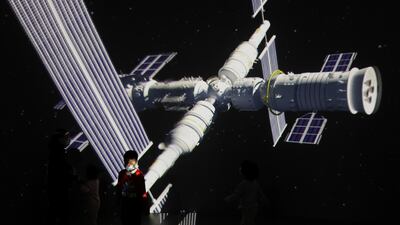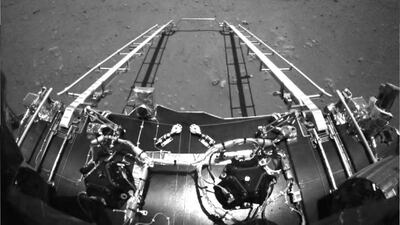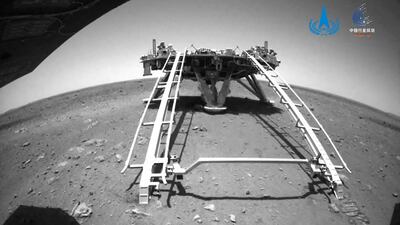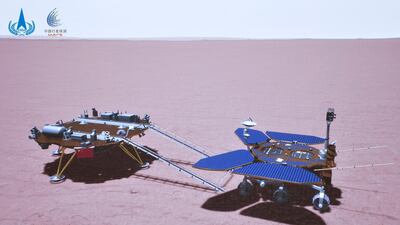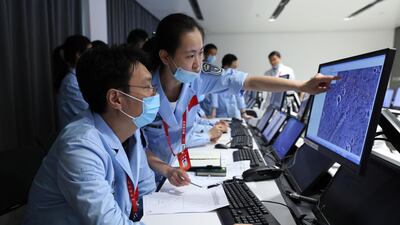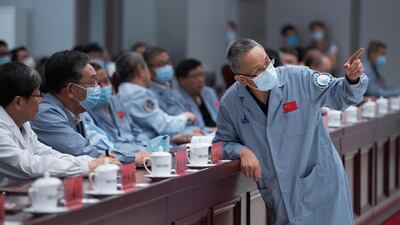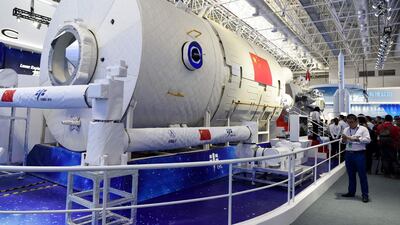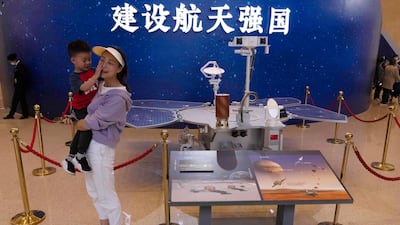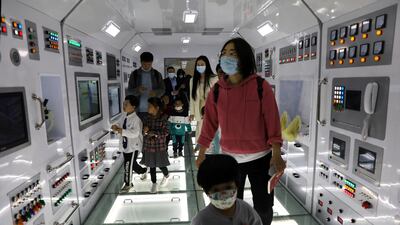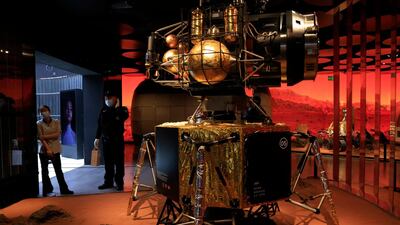China is preparing to send astronauts to its new space station for the first time, with a planned launch on Thursday due to deliver a crew of three to begin the country’s longest-ever space mission.
The first section of the Tiangong space station was put into orbit on April 29, with 11 other launches planned for next year to add additional modules and deliver crews and supplies.
China now spends more money on space exploration than any other country except for the United States, and the Tiangong project is at the heart of its ambitious space programme, which also includes its Mars rover and a plan to send astronauts to the Moon in 2030.
The three crew members said they were eager to begin transforming the space station into their home, where they will spend three months testing experiments and carrying out a series of spacewalks.
Mission commander Nie Haisheng, 56, said: “First of all, we need to arrange our home in the core module, then get started on a whole range of diagnostic tests on crucial technology and experiments.
“The task is very arduous and there are many challenges. My colleagues and I will cooperate closely, operate carefully and overcome all difficulties,” he said.
Astronauts Liu Boming - who carried out China’s first spacewalk in 2008 - and Tang Hongbo will also fly to the station on board a Long March rocket from the Jiuquan launch centre in north-west China.
The Tiangong station has living modules for each of the three crew members, as well as a bathroom, dining area, and a communication centre.

The crew will have a choice of 120 different types of food, China's space agency said, adding that the station had “space treadmills” for the astronauts to stay healthy.
To prepare for the mission, the astronauts have undergone over 6,000 hours of training, including hundreds of underwater somersaults in full space gear.
China’s space programme is a matter of prestige for the ruling Communist Party, which is preparing to celebrate its centenary next month.
Speaking to reporters from a sealed room as they prepared to begin boarding the spacecraft, the astronauts said they had total confidence in the mission.
Mr Tang, 45, said: “There is pressure. But where there is pressure there is motivation and … I have confidence in myself and have confidence in our team.”
China has sent 11 astronauts into space since it began manned missions in 2003, but Thursday’s launch is the first crewed mission in five years.
The Tiangong station is reportedly intended to be used for 15 years and could outlast the International Space Station, which is nearing the end of its lifespan.
Once completed, the station will allow for stays of up to six months, similar to ISS.
China's aim to build an orbital station of its own was fuelled in part by a US ban on its astronauts visiting the ISS.
The US has concerns over the secrecy that surrounds the Chinese space programme.
But Ji Qiming, Assistant Director of the China Manned Space Agency (CMSA), said Beijing was willing to co-operate with international partners on future space station missions.
“I believe that in the near future, when the Chinese space station is complete, we will see Chinese and foreign astronauts taking on joint missions to the Chinese space station,” Mr Ji said.
“Outer space is the common wealth of people all over the world, and exploring the universe is the shared cause of all mankind.”
China was widely criticised after the launch of the space station module for allowing the uncontrolled reentry of a part of the rocket.
Debris from the launch vehicle eventually landed in the Indian Ocean, ending days of speculation about where it could land.
The rocket being used for Thursday’s launch is of a different kind and won’t pose a threat, Mr Ji said.


